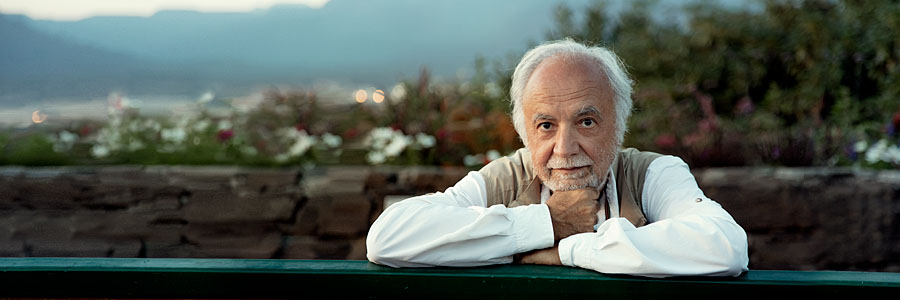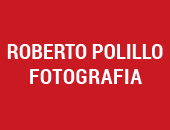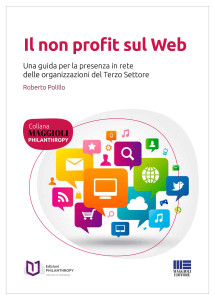I was born in Milan in 1946.
Summary
After classical studies, I graduated in Physics at the University of Milan in 1972. After the University I have never been involved in physics, but in computer science and software engineering, initially as a young researcher and professor at the University of Milano, then as an entrapreneur and a manager in the ICT services market.
Despite the fact that my main activity has mainly been in the ICT industry, I have mantained for 41 years a position at the University as a part-time associate professor: formerly at the University of Milano (1974-1999), and later at the University of Milano Bicocca, from where I retired in October 2015. Along the years, I held courses in computer programming, operating systems, human computer interaction, web design and internet technologies and paradigms.
After leaving University and the ICT business, I started a new life in art photography and, later, as a promoter of non-profit cultural iniziatives on art and ICT policymaking.
The early years: from the University of Milano to Etnoteam
Just after graduation, I started a university career at the “GEC – Gruppo di Elettronica e Cibernetica” directed by prof. Gianni Degli Antoni, a research group within the Institute of Physics of the University of Milano. GEC was a seminal group which gave birth to a number of important initiatives in the area of computer science and software engineering in Italy. In particular, we were involved in an important co-operation with the Honeywell Information Systems Italy laboratories, where all the parts of an Italian computer was designed and built. Our researches were focused on software development methodologies and software quality. In 1981, the group gave birth to the first university degree in Information Sciences of the University of Milano, and one of the first in Italy.
The co-operation with Honeywell gave birth to a number of startups which would have, in the following years, an important role in the Italian software services industry. The most important was Etnoteam S.p.A., a spinoff from the activities with Honeywell, which I co-founded in 1978 with two university collegues, Marco Maiocchi and Alberto Cazziol. A couple of years later, Roberto Galimberti, a manager in the TLC industry, joined as a fourth shareholder and President.
Etnoteam started with a significan know-how on software development methodologies and software quality processes, and over the years significantly broadened its scope of activities and gained an important reputation on the Italian market of software services, notably in the areas of operating systems, compilers, office systems, software system for telecom operators (both fixed and mobile), software quality systems and, from 1994, web applications and Internet technologies. In some of these areas Etnoteam was considered the Italian market leader.
In the 80s and early 90s, I was the Etnoteam Technical Director, and followed a number of important projects in the area of high level language processors (for Honeywell and Olivetti), office systems and operating systems. Some of the most important projects under my responsability were the development of Dossier, a seminal and innivative multi-spreadsheet tool, developed in 1980-1983 and marketed by Mondadori Publishing Company, and the development of Hyperface, an innovative user interface management system for real time applications, co-financed by the European Commission (which in 1984 was selected for the Compasso d’Oro prize of the Italian Design Association).
In the same period, Etnoteam was probably the Italian company most involved in pre-competitive research projects co-financed by the European Commission (Esprit Programme), for which I was for many years a consultant and a reviewer.
The growth of the Etnoteam group and the I.Net IPO
The growth of Etnoteam was constant and very fast along the years, reaching, in a three decades lifetime, the size of about 140 million Euro of consolidated turnover, and employing a staff of about 1400 peoples, with offices in Milano, Roma, Torino, Treviso, Genova, Napoli and Bruxelles. In these years I was first the General Manager, and finally the CEO.
Some important milestones of the Etnoteam group were the following:
- In 1994, Etnoteam co-founded I.Net S.p.A., the first Italian Internet provider for the business market.
- In 1998, the Quantum Fund of George Soros entered as a minority shareholder in Etnoteam, considering it a very promising company in the Internet area.
- In 1999, Etnoteam founded Etnoteam.com, a 100% owned company, one of the first application management company in Italy, operating through the Internet.
- In 2000, I.Net went public, with an extremely successful IPO (the market cap of I.Net, a relatively small company, was evaluated over 700 million Euros at the IPO). With the money collected from the market, I.Net built one of the largest Italian data centers of those years, in Castelletto (near Milano). Just after the IPO, British Telecom bought 51% of I.Net.
- In 2000, the Etnoteam group was an Italian leader in the Internet and Web design market. An important move was the acquisition of E-Tree, a most successful web company, located in the North-East of Italy (Treviso). This acquisition would have in the following years an important side effect: with the money gained from the sale of his company.
Etnoteam and “total quality”
As a General Manager and CEO, I was always very attentive in the creation of a work environment capable to attract and maintain the best technical people on the market. For many years we invested in a large “total quality” programme, and this gained to Etnoteam a strong reputation of excellence.
In 2002, when Etnoteam consolidated turnover was 137 million of Euros with a staff of more than 1300 people, a worldwide reasearch conducted by Computerworld (the IDG magazine) in 21 countries, declared Etnoteam “one of the best places to work in computer technologies in the world”, among a group of only 28 companies (17 ICT operators and 11 user companies), from an evaluated set of many hundreds of companies. The criteria were the quality of the work environment, including competitive salaries and benefits, career opportunities, flexibility and variety of work environment, people care and relationships among collegues.
Selling the Etnoteam group
In 2004 the shareholders of Etnoteam considered that Etnoteam, in a very difficult global IT market after the burst of the “Internet bubble” and September 11, was too small to compete with the large multinational IT service groups, and prepared to sell the company, hiring an external CEO.
In 2007, the 100% of the company was sold to Value Team, which merged it with other companies and, in turn, sold the resulting company to NTT Data Italia a few years later. In the same year, British Telecom launched an OPA for I.Net and, after buying the 100% of its shares, delisted it and merged with Albacom. The resulting company is now British Telecom Italia.
Back to the University
From 2004, in preparation for the sale, I maintained my position in the Etnoteam Board of Directors, but left day-by-day responsabilities. In these years I strenghtened my (part time) collaboration with the University of Milano Bicocca, from which I retired in October 2015.
I dedicated most of my time to teaching and publishing activities in the area of human computer interaction, web application design and the internet. I wrote a university tutorial on the basics of human computer interaction[1], which has been used in many Italian university courses, and two books on web quality and a web design methodology[2].
Also, for ten years, I cohordinated a “Corso di Laurea Magistrale” in Theory and technology of communication, a jount venture of the Department of Informatics, Systems and Communication (DISCO) and the Department of Psycology of the University of Milano Bicocca, a non technical degree teaching communication through the Internet.
In addition, from 2009, I dedicated most of my time to advocating the use of the internet by non-profit organizations and ICT4D (ICT for development). In particular, I founded TangoLab (Technology Assistance to Non-Governmental Organizations), a small lab at DISCO: a “container” for dozens of thesis on the subject. Some student projects where developed in development countries (Cuba and Nicaragua, where I have a house and where I stay from time to time). I also wrote a fourth book on the non-profit organization and the web [3]. I co-founded Think Foundation, a think-tank (closed in 2014) which organized three conferences on the subjet.
In 2016 I was awarded the Lifetime Achievement Award from the EBA – European Business Award.
A new life in photography…
I have been always interested in photography. From 1962 to 1974 I documented more that 100 jazz concerts, for the Italian magazine Musica Jazz, then managed for 39 years by my father Arrigo, who was a well known jazz critic, concert organizer and jazz historician.
Afterwards, my involvment in the computer software industry left no time for photography. I came back to it in 2003 when I left Etnoteam day-by-day operations, and from 2015 photography has been almost a full-time activity. No more jazz, but – initially – different themes related to street arts. Since 2006, I’ve been exploring color fine art photography based the ICM (Intentional Camera Movement) technique, and I am continuing my exploration of this artistic language.
My jazz photos have been published mainly on jazz magazines, on LP and CD covers, on books, and have been presented in many personal exhibitions in Italy, Switzerland, France and United States. In 2006 I published my first photographic book, with a large sample of my jazz photos: Swing, bob & free – Il jazz degli anni 60. A digital collection of my old jazz photos is presented in the 2019 book Jazz Icons – 60 jazz masters of the 60s. In the same year I published Sounds of Freedom, an art-book with American-cuban artist Leonor Anthony. My books Jazz dietro le quinte (2022) and Fotografare il Jazz (2023) tell the story of my activities in jazz photography; Sounding Pictures (2023) contains large images of the most important jazz musicians of the ’60s.
In 2016 I published my first book on ICM images, Visions of Venice. Then I published The Future and The City (2017), Uno Sguardo Profondo (with Albania Tomassini, 2019), Marocco (2020), Between the Visible and the Invisible – Exploring the World through Intentional Camera Movement (also published in Italian, 2021), Fotografare l’invisibile (2023).
For details on my photographic activities, see my photographic site.
Non-profit activities
In 2014 my wife Patricia passed away, after 41 years of life together. We had no sons, therefore, I decided to invest a large part of my wealth in some important non-profit initiative.
In 2016 I founded P&R-Foundation (Patricia & Roberto Polillo Foundation), with the mission of supporting the Italian digital policymaking processes (laws and regulations for the Internet). Indeed, after almost 25 years of activities in the ICT market, I felt that we have now a dramatic urgency to evolve our laws and regulations to the new paradigms set forth by the Internet. In 2022 this Foundation was closed, as I decided to involve myself in a larger non-profit project, called P.AR.CO. (Polillo ARt COntainer), a cultural center organizing events on all the themes in which I have been involved in my life: not only digital technologies, but also photography, art and music. P.AR.CO. is based on an old industrial building in the Barona – Naviglio Grande area in Milano, that I bought and renovated.
Notes.
[1] Facile da usare (Apogeo, 2010)
[2] Il check-up dei siti web ( Apogeo, 2004), Plasmare il Web (Apogeo, 2006)
[3] Il non-profit sul Web– Una guida per la presenza in rete delle organizzazioni del Terzo Settore (Maggioli, 2014)













